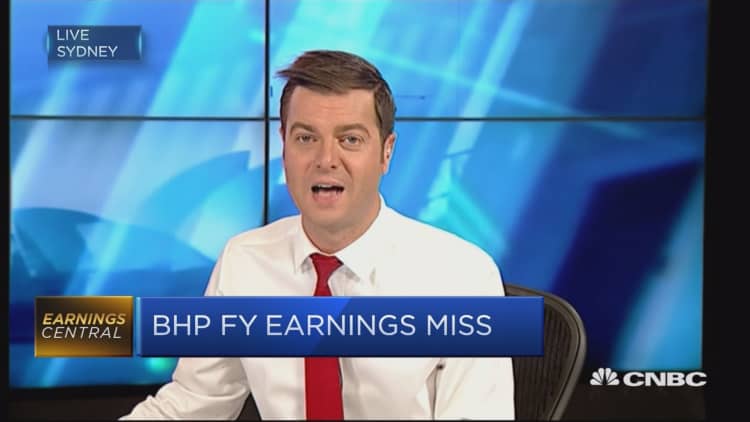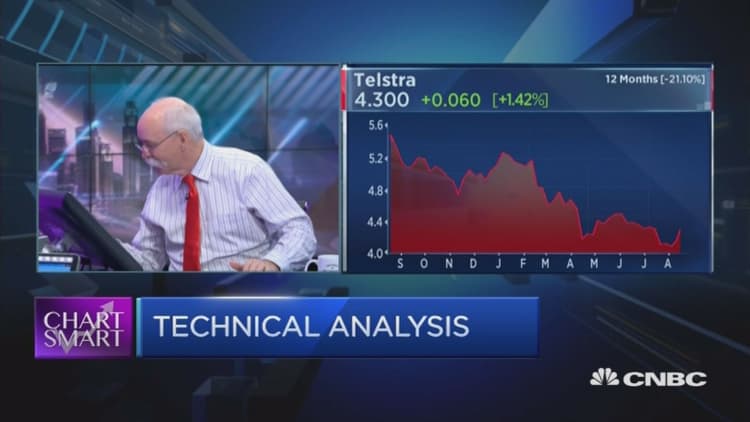
Global mining giant BHP Billiton posted a more than a five-fold rise in annual underlying profit on Tuesday to $6.7 billion on the back of a recovery in industrial commodities markets, but missed analysts' forecasts.
BHP tripled its final dividend to $0.43 a share, also below expectations, but pleased shareholders with a focus on reducing net debt, which was cut by nearly $10 billion.
"Net debt looks very impressive.. so the cash looks like it was applied to deleveraging versus extra dividends," Shaw and Partners analyst Peter O'Connor said.
Analysts had expected underlying earnings of around $7.4 billion, based on a Thomson Reuters I/B/E/S.
Bowing to pressure from some shareholders to consider spinning off its underperforming U.S. shale oil and gas business in the United States, BHP said it had deemed the business "non-core" and was "actively pursuing options to exit."
Fund managers including Elliott Management and Tribeca have been agitating for a sale or other form of divestment, along with higher shareholder returns and the elimination of dual-structured Australia and London stock listings.
Tribeca welcomed BHP's comments that the business was no longer core.
"That was our approach. We didn't see it fitting strategically in BHP. We think they can realize value ahead of market expectations for the U.S. onshore business," Tribeca analyst James Eginton said.
BHP Billiton Chairman Jac Nasser, who retires this year, recently conceded a $20 billion investment in shale six years ago was in hindsight a mistake.
Analysts have suggested the business could sell for about half that in today's market.
BHP benefited from a 32 percent rise in iron ore pricing in fiscal 2017, owing to greater demand from Chinese steelmakers, which buy the majority of the ore.
Prices for copper, oil, coal, nickel and other commodities were also up, with only liquefied natural gas weaker.
At the bottom line, the company swung to an attributable profit of $5.89 billion from its record loss of $6.39 billion a year ago.
In fiscal 2016, the bottom line was hit by $7.7 billion in write-downs, with Mackenzie vowing they would not be repeated in 2017.
WATCH: Where shares of BHP could be headed


